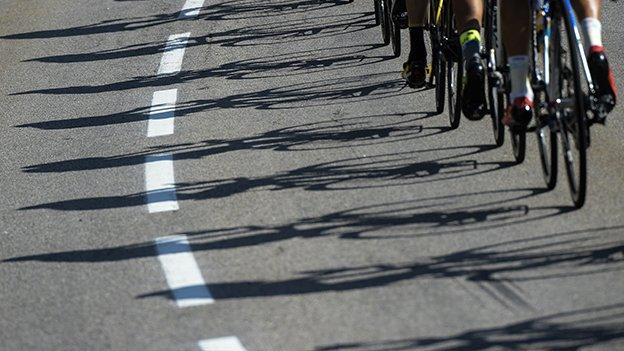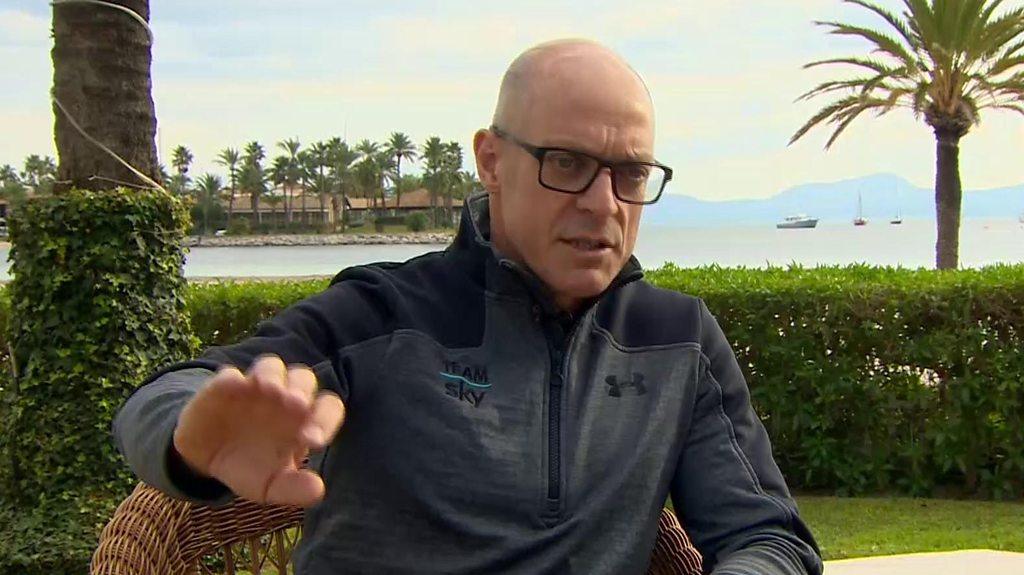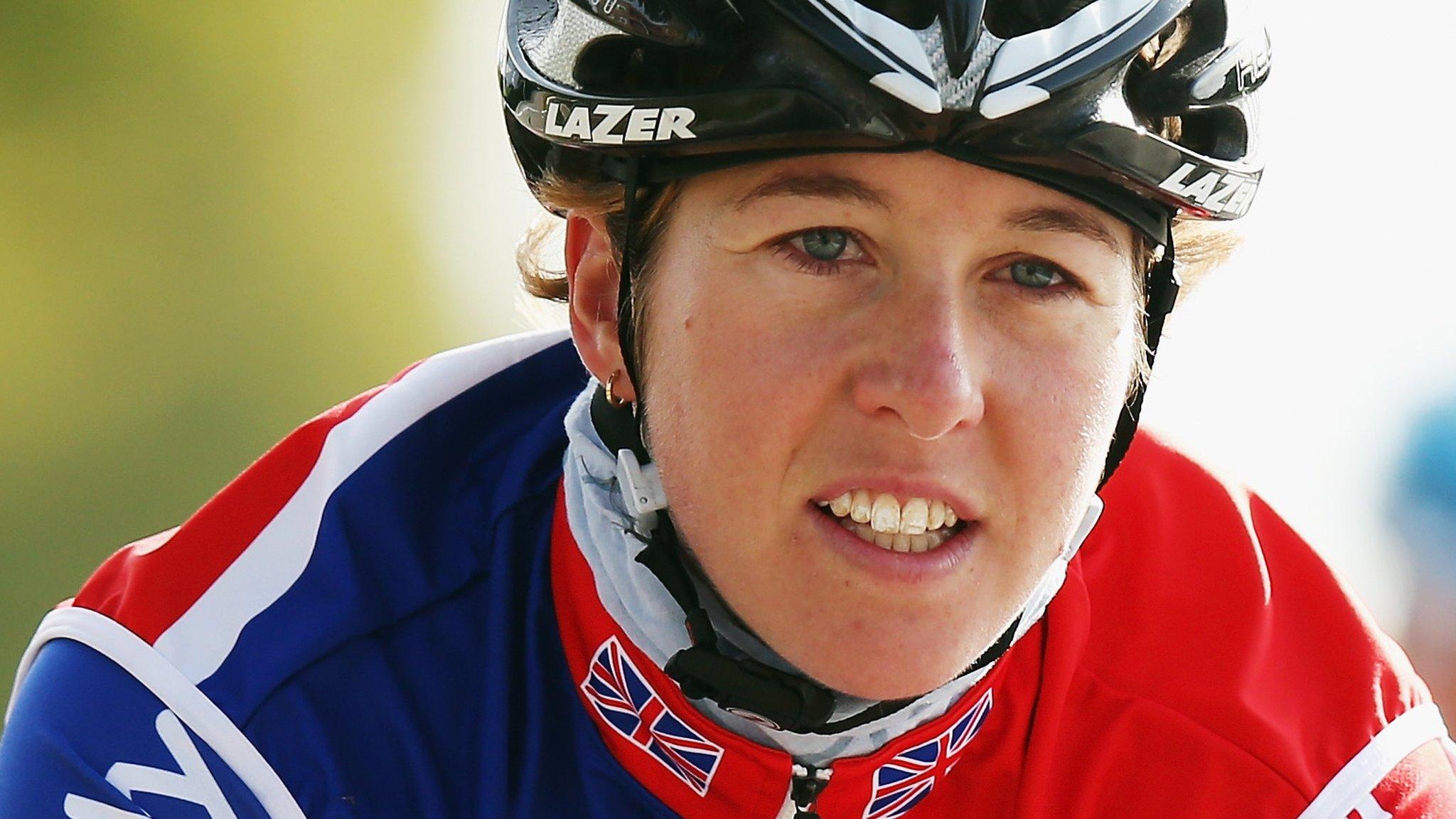British Cycling gave 'light-touch version of report' - UK Sport chief
- Published
'No indication of King report significance'
British Cycling has been accused of watering down the findings of an internal review in 2012 by the chief executive of UK Sport.
Liz Nicholl said the governing body "fed a very light-touch version" to the funding agency.
Former British Cycling chief executive Peter King took anonymous statements from 40 personnel as part of a report that was never made public.
"We didn't receive the King report," Nicholl told BBC Sport.
"We were given to believe that... actually we had a very light-touch version of it fed to us at UK Sport, so we had no indication of the significance of that report.
"It's only now come to light."
Speaking to national newspapers, Nicholl confirmed she considered it to effectively be a cover-up,, external adding: "That's a complete lack of transparency and that's a relationship that is not acceptable in terms of what was shared with us as opposed to what the actual facts of that report were."
UK Sport have faced questions over why they did not act on a report that is known to include allegations of bullying.
Nicholls' incendiary comments come as the country's most successful and best-funded sports governing body braces itself for the publication of another report into alleged bullying, favouritism and sexism, led by British Rowing chair Annamarie Phelps.
Publication is expected in the next month.
King report 'had guarantee of anonymity'
Former British Cycling chief executive Ian Drake commissioned the King report in September 2012 but left the organisation in January, three months earlier than planned. He could not be reached for comment.
UCI president Brian Cookson, who was president of British Cycling when King delivered the report in December 2012, said he would not comment until the Phelps report was published.
UK Sport are currently considering whether to help fund Cookson's re-election campaign, having contributed £77,000 in 2013.
King told BBC Sport he was "disappointed" to hear Nicholl say she never saw his full report.
In a statement, British Cycling said: "Contributions were made with a guarantee of anonymity, so key findings and recommendations were shared in briefings with UK Sport and the British Cycling board.
"The full report was also made available to the 2016 independent review, jointly commissioned by UK Sport and British Cycling in April last year, of the world class programme."

The background
The current Phelps inquiry was jointly commissioned by UK Sport and British Cycling following allegations of sexism and bullying made by rider Jess Varnish against former technical director Shane Sutton.
Varnish claimed the coach had used sexist and discriminatory language when dropping her from the Olympic programme, something he strongly denies.
In October, Sutton resigned and was found guilty of one charge of using inappropriate language by an internal review.
A number of other riders and former staff members have backed Varnish's portrayal of "a culture of fear" within British Cycling, including former road world champion Nicole Cooke, who told a parliamentary select committee that it was a sport "run by men, for men".
Former performance director Sir Dave Brailsford has insisted he ran a regime that was "not sexist but definitely medallist".
Sutton resigns amid discrimination row
"All those views are being taken into account through the review," said Nicholl.
"It's fair to say that the high-performance system here is pretty male-dominated. There aren't very many female coaches and there's an opportunity to address that in future, and to get a better balance to support athletes in a way that athletes of today want to be supported.
"Athletes have moved on and maybe the programmes haven't moved on as fast as they should have done, but what we see is an opportunity."
'There's no excuse for not putting athletes first'
The legally sensitive nature of Phelps' report has meant it has been delayed, with fears it could be heavily redacted to protect witness confidentiality.
Those who gave evidence are now being asked how much of their testimony can be revealed, while those criticised have an opportunity to respond.
Publication could take another month, but on 1 March British Cycling will brief staff and riders on an "action plan" - effectively its response to the report and concerns over the way it operates.
This will include greater oversight of its high-performance programme, and more consideration of athlete welfare.
"There's no excuse for not addressing duty of care responsibilities to athletes," said Nicholls. "There's no excuse for not putting athletes first.
"They are are the ones who'll deliver the medals and every programme should be trying to ensure they have happy and successful athletes and there probably hasn't been enough attention in sport about how they do things.
"There's a lot of focus on operational delivery, probably not enough on leadership management and communication."
Nicholl told the BBC that she would be "clear about the actions that UK Sport and British Cycling need to take".
- Published1 February 2017
- Published30 January 2017

- Published10 January 2017

- Published24 January 2017
